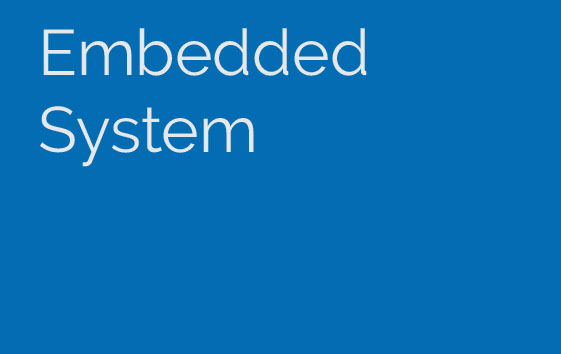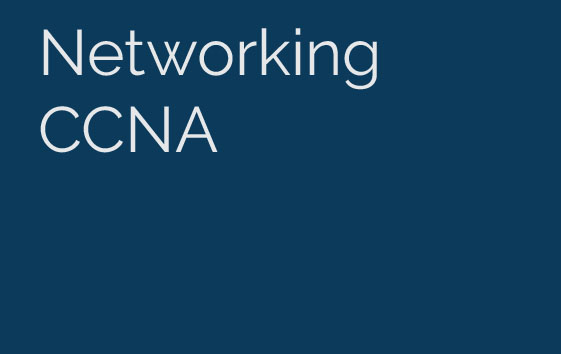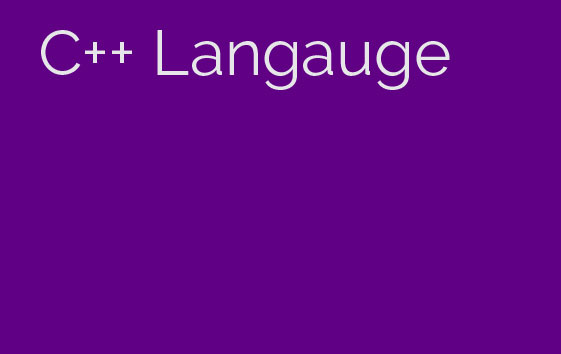Networking CCNA >>
CCNA stands for Cisco Certified Network Associate certification. Once you get this certification you are regarded as skilled professional who can easily work on computer networks of a medium size. Cisco Certified Network Associate (CCNA) validates the ability to install, configure, operate, and troubleshoot medium-size route and switched networks, including implementation and verification of connections to remote sites in a WAN.
CCNA curriculum includes basic mitigation of security threats, introduction to wireless networking concepts and terminology, and performance-based skills. The CCNA certification (Cisco Certified Network Associate) indicates a foundation in and apprentice knowledge of networking. CCNA certified professionals can install, configure, and operate LAN, WAN, and dial access services for small networks (100 nodes or fewer), including but not limited to use of these protocols: IP, IGRP, Serial, Frame Relay, IP RIP, VLANs, RIP, Ethernet, Access Lists. CCNA targets a wide audience of both students and professionals in IT and computer science background.
Cisco CCNA is for those who are interested in gaining technical knowledge of Internet and Networking. This can help start a good career in the Networking industry. CCNA certification is a foundation level certification to build a future in Computer Networking. CCNA is a pre-requisite for many of the advanced level certifications offered by Cisco. You can become an expert or professional by taking the other courses offered by Cisco the CCNP and CCIE. Those in the industry and who need a certification on configuring LAN/WAN can opt for this course. It covers a variety of Protocols like IP, IGRP, Serial, Frame Relay, IP RIP, CLAN's, RIP, Ethernet and Access Lists.
Before going through Networking live project training candidate should have knowledge of given concepts listed below:
- Strong Knowledge of Hardware
- Basic knowledge of N+(Networking).
What will u Become
- Cisco Network Engineer
- Networking Engineer
CCNA course can be completed within 3 to 4 month with practical and theoretical knowledge.
Before going through this course candidate can also refer these below websites link for this course:
Eligibility:
- Bachelor Degree Candidates
- Engineering students
- Network Planner
- Advance Learners
Course Software Requirements
- CCNA Network Simulator
- Basic networking concepts
- The OSI model
- Network adapters
- Introducing protocols
- Network cabling and devices
- Internetworking components
- Remote and WAN connectivity
- Troubleshooting hardware components
- TCP/IP fundamentals
- TCP/IP addressing and subnetting
- Name resolution
- Firewalls and proxies
- Troubleshooting network connectivity
- Identifying network operating system features
- Network clients
- Directory services
- Accessing and managing resources in a Windows network
- Monitoring and troubleshooting a Windows server
- Managing and troubleshooting NetWare network resources
- Fault tolerance and disaster recovery
- Routine maintenance
- Troubleshooting
- Installing NetWare 6.5
- Installing Windows Server 2003
- Introduction to Networking
- Networking Fundamentals
- Networking Media
- Cable Testing
- Cabling Lans and Wans
- Ethernet Fundamentals
- Ethernet Technologies
- Ethernet Switching
- TCP/IP Protocol Suite and IP Addressing
- Routing Fundamentals and Subnets
- TCO/IP Transport and Application Layer
- Wans and Routers
- Introduction to Routers
- Configuring a Router
- Learning about other Devices
- Managing Cisco IOS Software
- Routing and Routing Protocols
- Distance Vector Routing Protocols
- TCP/IP Suit Error and Control Messages
- Basic Router Troubleshooting
- Intermediate TCP/IP
- Acces Control Lists (ACLS)
- Introduction to Classless Routing
- Single-Area OSPF
- EIGRP
- Switching Concepts
- Switches
- Switch Configuration
- Virtual Lans
- Virtual Trunking Protocol
- Scaling IP Addresses
- Wan Technologies
- PPP
- ISDN and DDR
- Frame Relay
- Introduction to Network Administration












